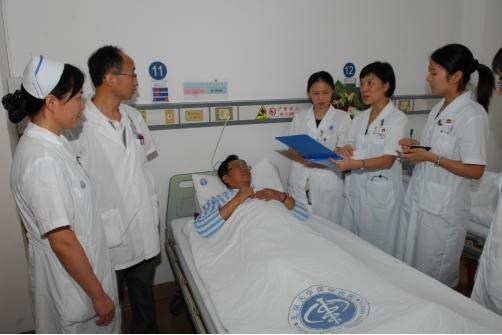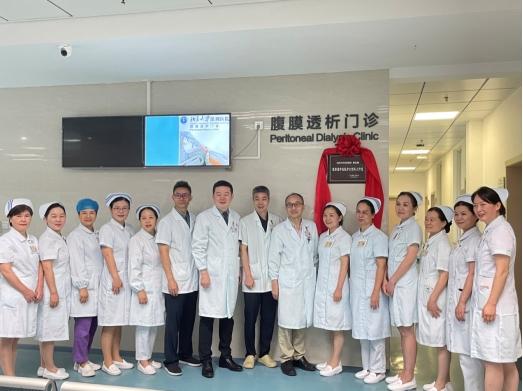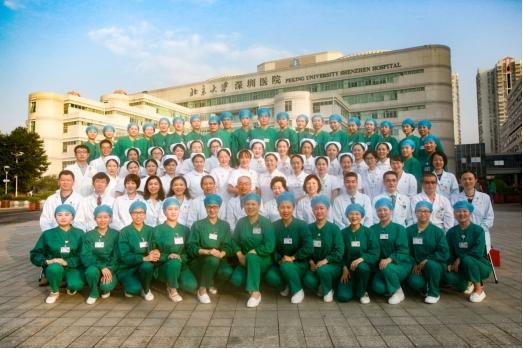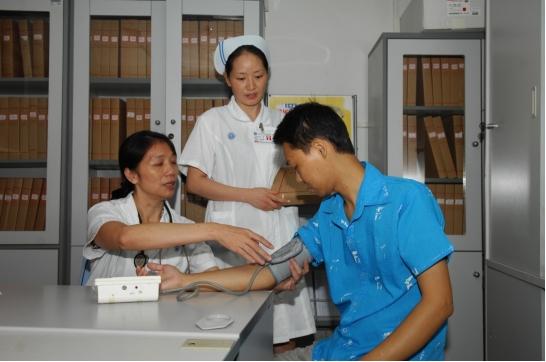The Nephrology Department of Peking University Shenzhen Hospital was established as an independent department in August 2001. Under the leadership of previous department heads, it has developed into a nephrology specialty with 64 beds, 86 hemodialysis machines, and 5 sub specialty directions by 2022. The department is a key clinical specialty of a high-level hospital in Guangdong Province. In 2016, our hospital's nephrology specialty ranked 98th in the country, and in 2018, it ranked 72nd.
The department currently has a total of 108 medical, nursing, and full-time research personnel, including 6 chief physicians and 9 deputy chief physicians; There are 10 doctoral students, 6 doctoral students, and 24 master's students, all of whom come from national key medical colleges and renowned overseas universities. More than 60 medical staff have gone to well-known institutions both domestically and internationally for training. The department covers an area of nearly 5000 square meters and has five working units including renal ward, hemodialysis center, peritoneal dialysis center, specialized outpatient department, and renal disease research institute. Various equipment such as hemodialysis and peritoneal dialysis are imported brands. The annual outpatient volume is nearly 70000, the annual number of discharged patients exceeds 2200, the annual number of kidney biopsies exceeds 500, the annual number of hemodialysis exceeds 50000, the annual number of vascular access surgeries exceeds 500, and the number of long-term peritoneal dialysis follow-up patients is 320.
The department has outstanding advantages in technology, mainly including: 1. Diagnosis and treatment of renal pathology and difficult kidney diseases; 2. Various vascular access surgeries; 3. Percutaneous peritoneal dialysis catheterization; 5. Various complex blood purification technologies are at the leading level in Shenzhen. Participated in more than 10 international and domestic multi center GCP projects, not only enhancing specialized advantages, but also bringing good news to patients with various difficult kidney diseases. Special diagnosis and treatment items include but are not limited to: diagnosis and treatment of various primary and secondary glomerular diseases, such as IgA nephropathy, refractory nephrotic syndrome, membranous nephropathy, vasculitis, pregnancy associated nephropathy, diabetes nephropathy, etc; The various specialized advantages mentioned above are routine tasks of the department.
In the future, our department will uphold the values of "sincerity, harmony, patience, and progress", and work together with colleagues and patients to "provide high-quality life for patients with chronic kidney disease".




